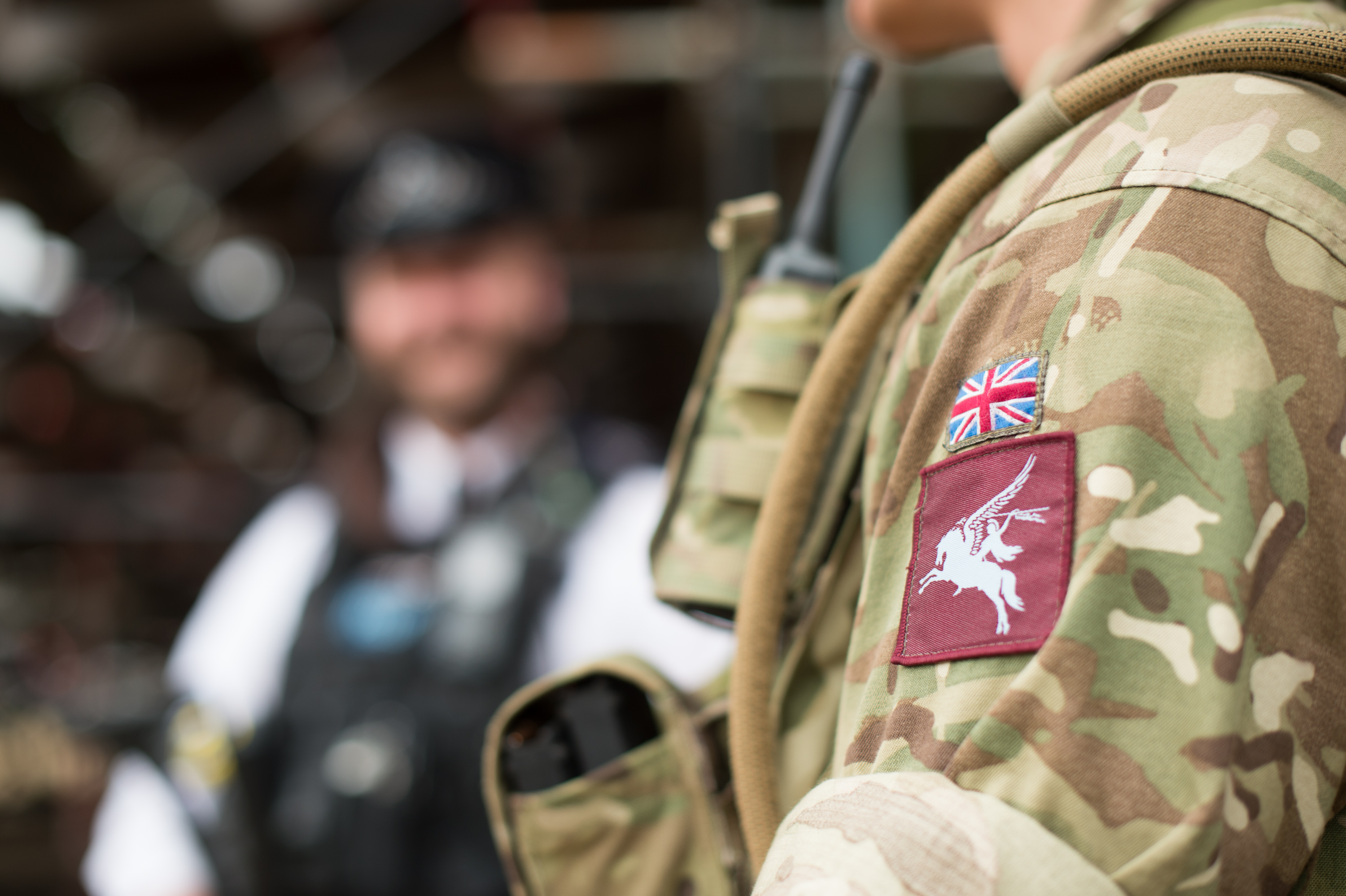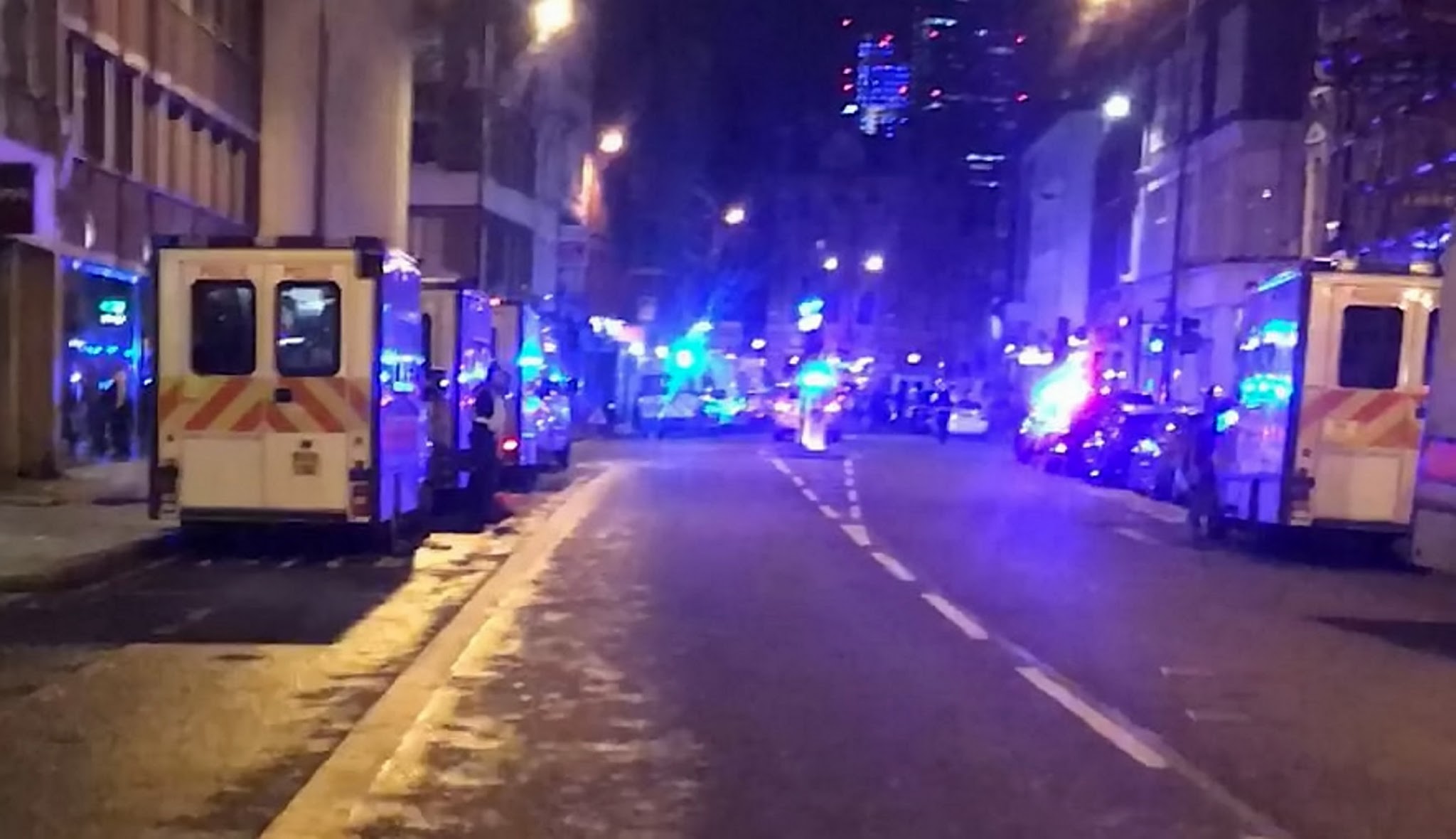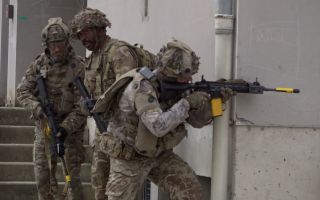
COMMENT: 'National Conversation Needed' On Extremism

Last year, soldiers were deployed during Operation Temperer, which is the plan for the military to support police after a major terrorist attack (Picture: Crown Copyright).
On Wednesday a conference organised by CoJiT-UK (Combating Jihadist Terrorism in the UK) takes place.
CoJiT-UK was the conception of Ian and Kevin Maxwell - they explain why they launched the independent initiative.
Kevin and I watched in disbelief as the images broke of terrorists killing and maiming innocent passers-by on and around London Bridge last year. Our reaction was shared by people worldwide.
In the aftermath of those events, however, watching television and listening to the reporting and commenting on the incidents we felt that there was simply a real shortage of quality, independent, research, and accessible, evidence-based resources in the media, the affected communities and in the public bodies that serve them.
If good analysis really existed, it needed far more daylight.
One of the consequences of the relentless 24/7 news cycle was that coverage of the terror attacks seemed to reinforce this disinformation - either through a lack of transparency about sources, facts left unverified or a lack of context.
At the same time, mainstream media reinforced existing prejudices and stereotyping of the Muslim community and social media acted like an echo chamber.
With a background in professional publishing, including in this area - as long ago as 1989 one of our companies, Pergamon-Brassey’s, published Terrorism: The Newest Face of Warfare by Donald J. Hanle as the initial volume of its 'Terrorism Library' series - we could see that there was an information gap here that needed to be filled, and urgently.

This is not an easy subject to become involved with. As the prime minister, Theresa May, said after the London Bridge-Borough Market attacks: "We need to become far more robust in identifying [extremism] and stamping it out.
"That will require some difficult and often embarrassing conversations."
We believe that we need to promote understanding and mutual respect through informed discussion between Muslim and non-Muslim communities. Only this way can UK government engagement programmes like Prevent, designed to reduce, and ultimately stop, jihadist terrorism in the UK, succeed.
We need to have difficult, honest conversations. The London Bridge atrocities planted a seed. We felt there was a need for a torch to be shone on jihadist terrorism, to better understand it, to find out truths about it, so that both subsequent media coverage and the surrounding debate would be less based on supposition and prejudice but more on realities and hard evidence.
By commissioning an independent body of work, we are seeking to develop an improved understanding and definition of the jihadist terrorist threat in the UK, to create sound resources to help shape the public debate, public policy and to help in identifying and implementing solutions to confront, diffuse and ultimately eliminate jihadist terrorism in our country.
This is why we have established CoJit-UK. We realised that to have the kind of debate the PM has called for, presupposes a basic, accepted level of independent, trusted information about the subject.
Synthesising this information and disseminating it broadly is crucial in preparing for, and contributing to, a national conversation.
This is what CoJiT-UK is seeking to do.
In setting it up, we were clear from the outset that it must be completely independent and independently funded so that it would owe nothing to political sensitivities, institutional competition or preconceived ideas.
Neither should it duplicate the work of, or seek to compete with, established institutions and other players in the field carrying out new research. CoJiT-UK has been funded to date by a number of private citizens, independent in outlook and means, and is registering for charitable status.
Its work had to begin by trying to fill the information gap we have identified, by commissioning experts in the field to set up a baseline understanding of the current jihadist terrorism problem, in the UK.
Heading up this team is the distinguished academic Professor Michael Clarke, the recently retired Director of RUSI (Royal United Services Institute) and founding Director of the Centre for Defence Studies at King’s College, London. He shared our concern and analysis about the information gap in the reporting of, and the debate around, jihadist terrorism.

As Chairman of CoJiT-UK, he has recruited a respected team of editors and expert contributors to look afresh at how the problem of jihadist terrorism is defined and to discuss openly, without fear or favour, what should be done to counter it. At CoJiT-UK’s London conference this week those experts, who together have contributed 28 studies constituting the baseline report on the problem, will share their findings fully, covering areas from hate preachers, to the role of women in jihadist terrorism.
The studies will also be published and presented publicly at events and debates to be held around the UK this year and next.
The conference and the national conversation that follows on from it will not be a talking shop for academics though.
CoJiT-UK will identify specific actions for practical engagement at all levels of society, seeking to achieve the equivalent of a ‘multiplier effect’, branching out from local communities to local and national government, designed to lead to improved policy and operational change that CoJiT-UK will monitor and encourage in the fight to combat home-grown jihadist terrorism in the UK.
The government is alive to the constant need to evaluate both its counter-terrorism and counter-extremism policies and operations.
Sara Khan, the independent Lead Commissioner for Countering Extremism, is also focussed on delivering policies, based on real evidence, that work. That is why she is delivering the keynote speech at CoJiTUK’s conference. We can add value to that.
CoJiT-UK has the advantages of being narrower in focus, faster and more agile, not politically beholden to any party or government department and is therefore in a position to help kick start something that others, including the government, can take advantage of as they do their own work in their own ways.
This is why the inaugural conference we have organised this week in London to combat jihadist terrorism in the UK is taking place and simultaneously an independent national conversation is being launched.









